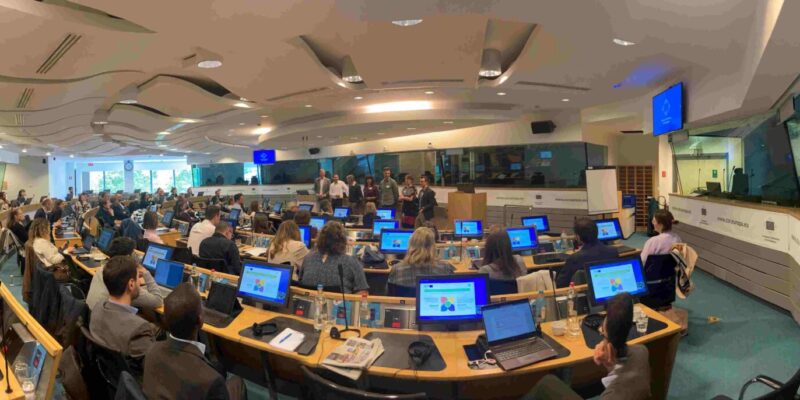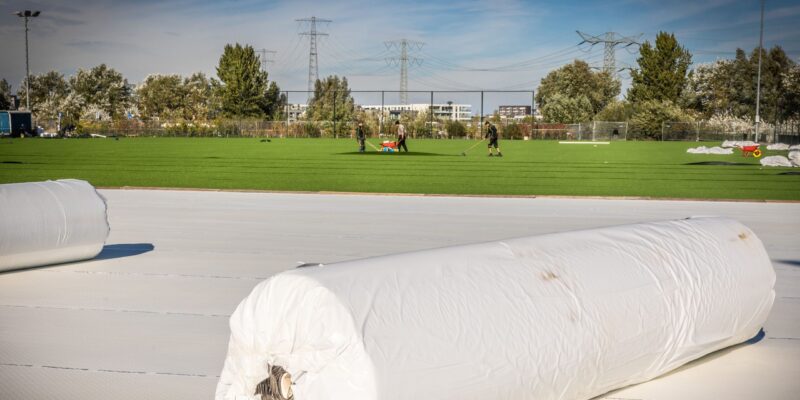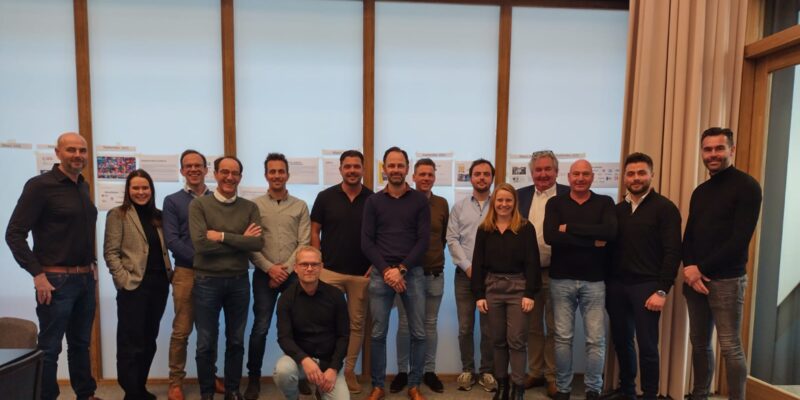Circular textile procurement in the Metropolitan Region Amsterdam: ‘Alone you go faster, together we go further!’

The Metropolitan Region Amsterdam(MRA) is the partnership between the provinces of North Holland and Flevoland, 30 municipalities and the Amsterdam Transport Region. The MRA is striving for a circular economy and textile procurement plays a crucial role in this. We spoke with Marten Boels, raw materials director at the MRA, about his vision, the ambitious goals and concrete steps the region is taking in terms of circular textile procurement.
How is the MRA contributing to those circularity goals in textiles?
‘The MRA is working towards more circularity in textiles, with an ambition to be 80% circular by 2030. As much as a quarter of the Dutch textile sector is located here. The MRA is a large and diverse area, with approximately 2.5 million residents and a very active international economy. Our purchasing choices make a big difference, including the procurement of corporate clothing. To support buyers in making sustainable purchasing choices, the MRA has developed a guide for municipalities and provinces. In addition, we organise an annual ‘Community Day of Practice’, where inspiring examples are shared, knowledge and help is offered to buyers and together we look for opportunities to make the greatest possible impact.’
What opportunities do you see in the region?
‘Smaller municipalities can sometimes engage in 1-to-1 talks with parties to procure, while other parties have to follow a multiple-negotiated, public or non-public procedure. This opens the door for innovation on a small scale, which is often much faster. In these municipalities, we often see individual entrepreneurs and smaller initiatives executing wonderful circular projects with textiles. So smaller municipalities can also procure circularly by awarding contracts to innovative suppliers.’
What obstacles do you see in implementing circular textile procurement?
‘We find that some buyers struggle to master and apply sufficient knowledge about circular procurement. Understanding circular materials, investigating where there are opportunities to use second-hand clothing or setting up a new clothing system takes a lot of time and research, for which there is not always time. Thereby, we see that people often prefer new clothing over second-hand company clothing; this is about behavioural change. This can hinder the speed of circular procurement.’
So, while growth is reasonable, why is this aspect lagging behind?
‘We see an imbalance. The ambitions of the municipalities are often high, but in practice the implementation turns out to be more complex than expected. The plans do not take into account the current reality sufficiently That is why it is essential to collaborate on a larger scale and to ensure that buyers do not try to reinvent the wheel themselves. Smaller authorities can hitch a ride on the knowledge and experience of the region and other municipalities.’
Can you name an example where this has gone well?
‘A good example is the circular jeans from the Municipality of Zaanstad. These jeans are made of 40 percent recycled cotton; they can easily be taken apart for repair and restoration. It has buttons instead of a zip, which also makes the trousers easier to repair. The trousers have no conspicuous labels or prints, allowing them to be used for various workers. The municipality also takes a different view on the ownership and use of company clothing: employees sign a loan agreement and thus take responsibility for the care of the clothing, just like with a company laptop or phone. The municipality has not compromised on wearing comfort anywhere. ‘Making a new pair of jeans takes about 7,000 litres of water*, then you make an impact!’
* KplusV 2020, Fast fashion research
What can buyers learn from this?
‘A good tip for buyers is to collaborate and not reinvent the wheel. Use existing networks and opportunities. Also engage structurally in circular procurement within your organisation. Make use of the knowledge and experience available. The MRA offers a network where you can meet other parties, and there is also a national Textile Buyer Group that can help with circular procurement and networking. Only by collaborating and taking concrete steps can we take everyone with us in this movement.’
Alone you go faster, together we get further.
Marten Boels, Amsterdam Metropolitan Region
Want to know more about how the MRA buys circular textiles?
Then listen to this podcast from MRA (NL).


